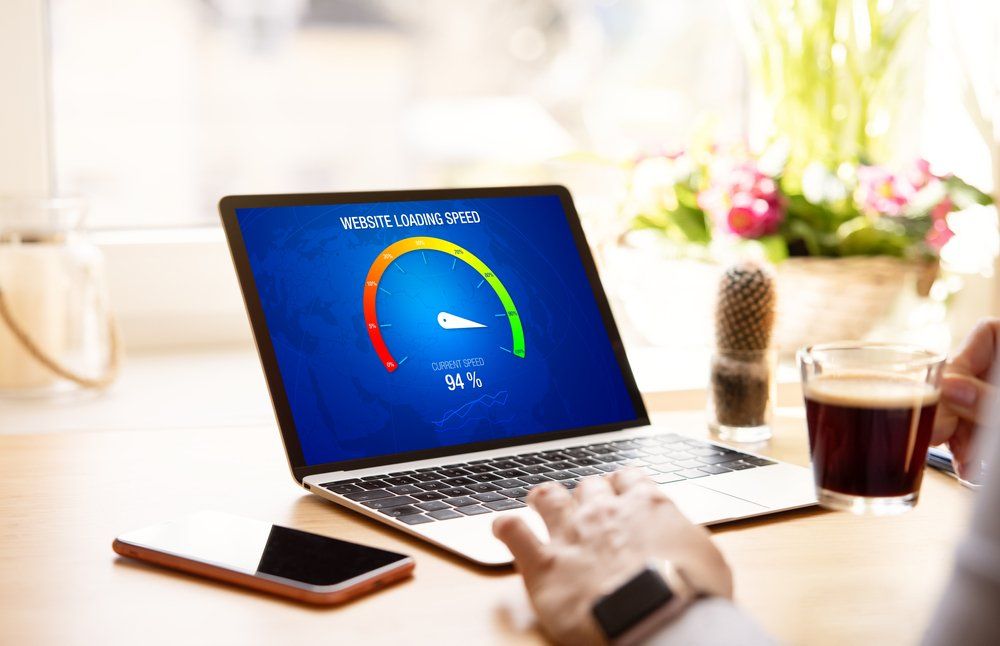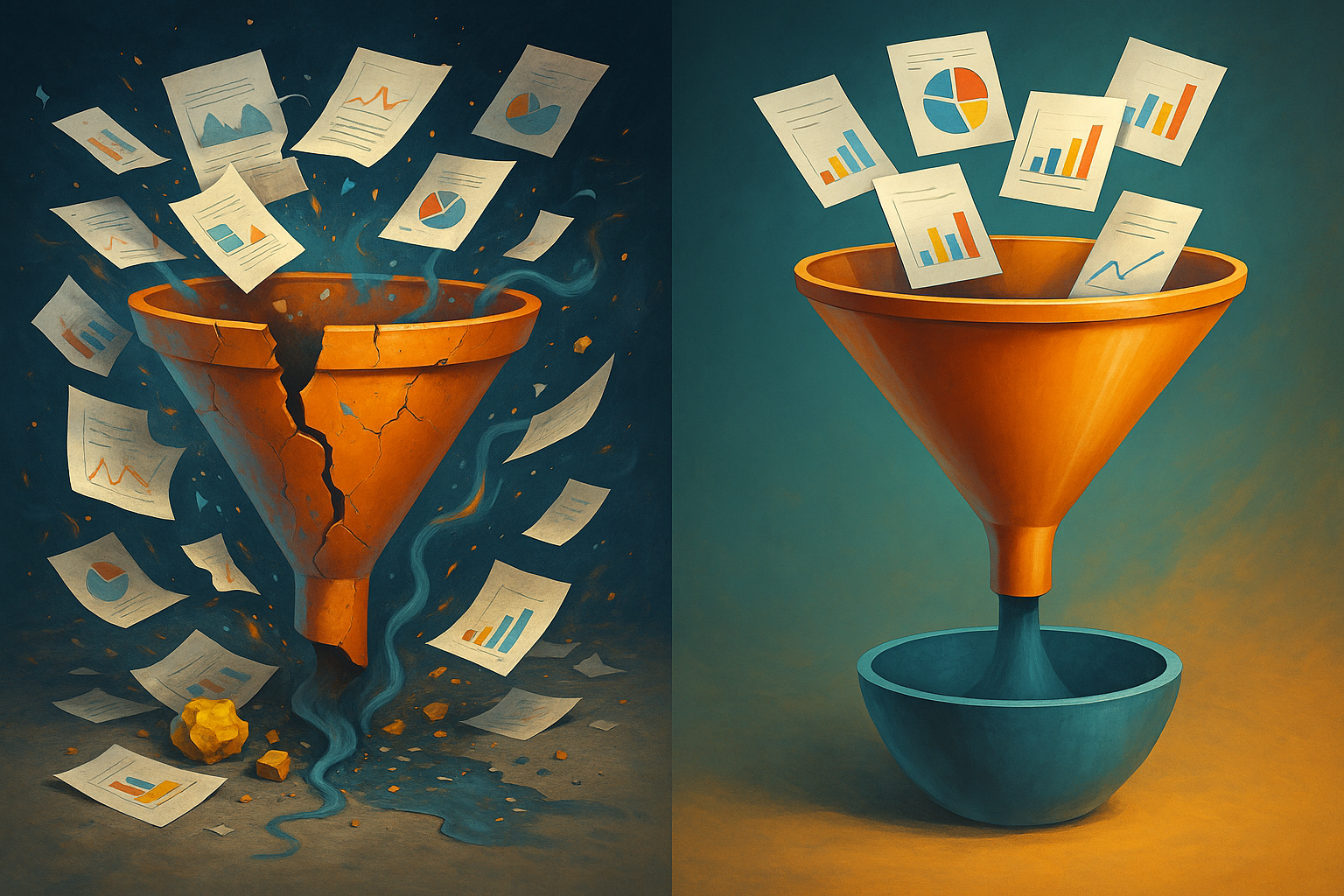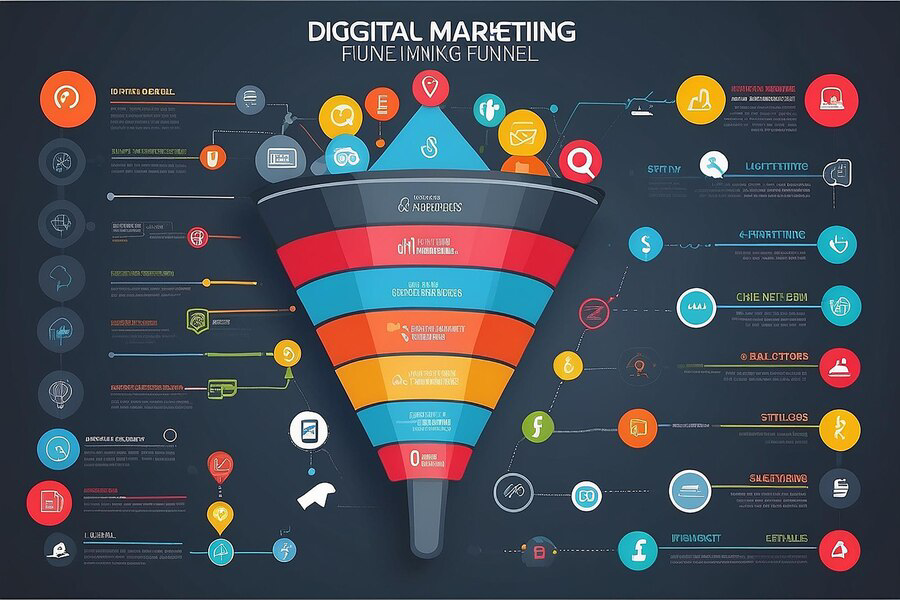by Sean Hyde
•
2 July 2025
Local Social Media Strategies: How to Boost Engagement and Target Your Local Audience Effectively In today's digital landscape, social media has become an essential marketing channel for businesses of all sizes. However, for local businesses, a generic approach to social media marketing often falls short. To truly connect with your community and drive meaningful results, you need targeted local social media strategies that speak directly to the people in your area. Local social media marketing focuses on engaging with customers in your specific geographic location, creating content that resonates with local interests, and leveraging platform features designed for location-based targeting. When executed effectively, these strategies can transform your social media presence from a broad broadcasting tool into a powerful local engagement engine that drives foot traffic, builds community relationships, and increases revenue. This comprehensive guide explores proven local social media strategies that help businesses boost engagement and effectively target their local audience. From platform selection and content creation to targeting techniques and measurement strategies, you'll discover actionable insights to enhance your local social media marketing efforts. What Are Local Social Media Marketing Strategies and Why Do They Matter? Local social media marketing strategies are specialized approaches that focus on connecting with and engaging audiences within a specific geographic area. Unlike broader social media marketing efforts that might target national or international audiences, local strategies prioritize community engagement, location-specific content, and geo-targeted advertising to reach people in your immediate service area. How Does Local Social Media Marketing Differ From General Social Media Marketing? While general social media marketing and local social media marketing share many fundamental principles, several key differences set them apart: 1.Geographic focus: Local social media marketing concentrates on reaching users within a defined geographic radius—typically within driving distance of your physical location or service area. 2.Community emphasis: Local strategies prioritize building relationships with community members, highlighting local involvement, and fostering neighborhood connections. 3.Personalization level: Local approaches often feature more personalized content and interactions, with businesses recognizing regular customers and addressing community-specific interests. 4.Event integration: Local social media marketing frequently incorporates promotion of and participation in local events, festivals, fundraisers, and community gatherings. 5.Platform priorities: While general marketing might emphasize platforms with the broadest reach, local strategies often prioritize platforms where local targeting features are most robust. 6.Content specificity: Local content references neighborhood landmarks, local news, regional weather, and community-specific topics that resonate with nearby audiences. 7.Measurement focus: Success metrics for local campaigns often include store visits, local engagement, and community sentiment rather than just broad reach or general brand awareness. These distinctions make local social media marketing particularly valuable for businesses that primarily serve customers within a specific geographic area. What Are the Key Benefits of Focusing on Local Audiences? Concentrating your social media efforts on local audiences offers numerous advantages: 1.Higher conversion rates: People who see relevant, local content are more likely to visit your location or purchase your services, as proximity removes a significant barrier to conversion. 2.Improved targeting efficiency: Local targeting reduces wasted ad spend by focusing resources on people who can realistically become customers based on their location. 3.Enhanced community relationships: Regular engagement with local audiences builds stronger community connections and fosters brand loyalty. 4.Increased word-of-mouth marketing: Local social media strategies encourage satisfied customers to share their experiences with friends and family in the area. 5.Greater content relevance: Location-specific content resonates more deeply with local audiences who recognize and relate to the places, events, and issues mentioned. 6.Competitive differentiation: Many businesses fail to properly localize their social media approach, creating an opportunity for those who do it well to stand out. 7.Complementary marketing integration: Local social media efforts naturally complement other local marketing initiatives like community sponsorships, local SEO , and neighborhood events. For businesses with physical locations or service-area limitations, these benefits make local social media marketing an essential component of their overall digital strategy . Which Social Media Platforms Work Best for Local Marketing? While virtually all major social platforms offer some local marketing capabilities, certain platforms excel for specific local business objectives: 1.Facebook: •Robust local business pages with hours, services, and location information •Sophisticated local targeting options for advertising •Community groups organized by neighborhood or interest •Local events features for promotion and discovery •Check-in functionality that generates social proof 2.Instagram: •Location tagging for posts and stories •Local hashtags to increase discoverability •Visual showcase for products, services, and location •Location-based stories and explore features •Shopping features tied to physical inventory 3.Google Business Profile (while not traditionally considered social media, it has social elements): •Customer reviews and Q&A features •Post functionality similar to social platforms •Direct integration with Google Maps and local search •Photo sharing capabilities •Direct messaging with customers 4.Nextdoor: •Exclusively neighborhood-focused platform •Highly targeted local advertising options •Business pages designed for local discovery •Recommendation features from neighbors •Community discussion participation 5.Twitter: •Location-based trending topics •Geo-targeted advertising options •Real-time local event engagement •Community hashtag participation •Local news and information sharing 6.TikTok: •Growing location-based discovery features •Trending local sounds and challenges •Behind-the-scenes content that humanizes local businesses •Creative ways to showcase products and services •Increasing local advertising capabilities 7.LinkedIn: •Valuable for local B2B businesses •Community engagement through local business groups •Professional networking within geographic areas •Local hiring and recruitment •Business location targeting for ads The ideal platform mix depends on your specific business type, target audience demographics, and marketing objectives. Most local businesses benefit from focusing on 2-3 platforms where their audience is most active rather than trying to maintain a presence everywhere. How Can Small Businesses Use Social Media Engagement Strategies Locally? Engagement is the lifeblood of effective social media marketing, particularly for local businesses. Here's how to foster meaningful interactions with your local audience: What Types of Content Drive Local Engagement on Social Media? Certain content types consistently perform well for local audience engagement: 1.Behind-the-scenes content: Show the human side of your business with employee spotlights, workspace tours, or production processes. This transparency builds trust and connection with local customers who value supporting real people in their community. 2.Local event coverage: Share photos and videos from community events, whether you're participating as a business or simply supporting as a community member. This demonstrates your involvement in local life beyond just commercial interests. 3.User-generated content: Reshare posts from customers enjoying your products or services, especially when they've tagged your location. This provides authentic social proof while making customers feel appreciated. 4.Local partnerships and collaborations: Highlight joint initiatives with other local businesses or organizations. This cross-promotion benefits both parties and shows community support. 5.Location-specific offers: Create special promotions exclusively for local followers, such as in-store discounts, local delivery options, or neighborhood appreciation days. 6.Community milestones and celebrations: Acknowledge local achievements, anniversaries, sports victories, or community improvements to show you're paying attention to what matters locally. 7.Seasonal and weather-related content: Reference current local conditions with timely content, like snow day specials during winter storms or refreshing product recommendations during heat waves. 8.Local trivia and history: Share interesting facts about your neighborhood, building, or community history to educate and engage locals who have a connection to the area. 9.Staff recommendations: Have team members share their favorite local spots, activities, or complementary businesses to position your brand as a local authority. 10.Community questions and polls: Ask for local opinions, recommendations, or preferences to start conversations and gather valuable insights while making followers feel heard. The most engaging local content often combines several of these elements while maintaining an authentic voice that reflects your brand personality and community culture. How to Encourage Community Interaction and User-Generated Content? Building a participatory local social media community requires intentional strategies: 1.Create branded hashtags: Develop unique, location-specific hashtags that customers can use when posting about your business, making it easier to find and reshare their content. 2.Run local photo contests: Encourage customers to share pictures at your location or using your products around town, with prizes for the best submissions. 3.Implement check-in incentives: Offer small discounts or perks when customers check in at your location on social platforms, increasing visibility among their local networks. 4.Host social media takeovers: Invite local influencers, community leaders, or even customers to temporarily manage your social accounts, bringing their followers and perspective to your channels. 5.Create shareable photo opportunities: Design Instagram-worthy spaces or moments in your business that naturally encourage customers to take and share photos. 6.Acknowledge and reward engagement: Regularly recognize active community members with shout-outs, feature customer of the month spotlights, or provide loyalty rewards for social participation. 7.Ask for specific feedback: Rather than generic questions, ask for detailed input on new products, services, or improvements to make participants feel like valued advisors. 8.Create location-based challenges: Develop fun, branded challenges specific to your area that encourage participation and sharing. 9.Leverage local events: Set up photo booths or branded backdrops at community events that make it easy for attendees to create and share content featuring your business. 10.Respond consistently: Maintain high response rates to comments and messages, showing that participation leads to actual conversation rather than disappearing into the void. Remember that building a participatory community takes time and consistency. Start with smaller engagement initiatives and gradually expand as your local social media presence grows. What Are Effective Ways to Respond to Local Customer Comments and Messages? How you handle interactions significantly impacts your local social media success: 1.Respond promptly: Aim to reply to comments and messages within a few hours during business hours. For local businesses, customers often have time-sensitive questions about availability, hours, or offerings. 2.Use a personal touch: Sign responses with team member names and reference specific details from the customer's comment or message to show you're really listening. 3.Maintain local voice: Respond in a tone that reflects your community's culture and your brand personality, avoiding generic corporate-sounding replies. 4.Address location-specific questions thoroughly: When customers ask about parking, nearby landmarks, or local delivery areas, provide detailed information that demonstrates local expertise. 5.Take complex conversations private: For detailed customer service issues, direct customers to direct messages, phone, or email while still acknowledging their initial comment publicly. 6.Show appreciation for feedback: Thank customers genuinely for both positive and constructive comments, emphasizing how valuable their input is to your local business. 7.Follow up on resolved issues: Circle back to public comments after resolving problems privately to show others that you follow through. 8.Create response templates for common questions: Develop customizable templates for frequently asked questions to ensure consistency while saving time. 9.Use local context in responses: Reference neighborhood details, weather conditions, or community events when relevant to show you're actively engaged in the local scene. 10.Monitor tagged and untagged mentions: Use social listening tools to catch conversations about your business even when you're not directly tagged or mentioned. Effective response management builds a reputation for attentiveness and customer care that distinguishes your business from competitors who may treat social media as a one-way broadcasting channel. What Are the Best Practices for Local Audience Targeting on Social Media? Precise targeting is essential for maximizing the impact of your local social media efforts: How to Use Geo-Targeting and Location-Based Features in Social Ads? Social platforms offer powerful location-targeting capabilities for advertisers: 1.Radius targeting: Set specific distance parameters around your business location or multiple locations to reach users within those areas. Adjust the radius based on your business type—smaller for urban cafés, larger for destination retailers or specialty services. 2.Address targeting: Target specific addresses plus surrounding areas, useful for reaching people near shopping centers, event venues, or competitors' locations. 3.Zip code targeting: Select specific postal codes for more precise neighborhood targeting, especially valuable when demographics vary significantly between adjacent areas. 4.City targeting with exclusions: Target an entire city but exclude specific neighborhoods that don't match your customer profile or service area. 5.Custom location targeting: Draw custom geographic boundaries on maps in platforms like Facebook to create highly specific targeting areas that match natural neighborhood boundaries or service territories. 6.Location-based retargeting: Create audience segments of users who have previously visited your location and show them tailored follow-up content. 7.Geofencing for events: Set up temporary location targeting around event venues when participating in farmers markets, festivals, or conferences. 8.Layered demographic targeting: Combine location parameters with demographic filters to reach specific audience segments within your geographic area. 9.Seasonal location adjustments: Expand targeting during tourist seasons or special events when visitors from outside your usual service area might be present. 10.Competitor location targeting: Ethically target people who visit locations similar to yours or direct competitors (where platform policies allow). When implementing geo-targeting, start with tighter radius parameters and gradually expand based on performance data. This prevents wasting budget on areas too far from your business to generate meaningful results. What Demographic and Interest Data Should Local Marketers Prioritize? Beyond location, these targeting parameters help refine your local audience: 1.Age and family status: Align targeting with your typical customer profile, recognizing that different age groups may have varying levels of mobility and spending patterns in local contexts. 2.Income levels: Target household income ranges that match your pricing and offerings, particularly important for luxury services or budget-friendly options. 3.Homeownership status: Differentiate between homeowners and renters when relevant to your services (especially important for home services, real estate, and home improvement businesses). 4.Length of residence: Some platforms allow targeting based on how long someone has lived in an area, helping you reach newcomers or established residents depending on your offering. 5.Commuting patterns: Target people who regularly travel through areas near your business location during specific times of day. 6.Local interests and activities: Focus on interests with local relevance, such as community organizations, regional sports teams, or area-specific recreational activities. 7.Complementary business affinities: Target users who follow or engage with non-competing local businesses that share your customer demographic. 8.Life events with local impact: Focus on life changes that drive local service needs, such as moving, home purchase, new job, or new child. 9.Device usage: Consider targeting mobile users when they're near your location for time-sensitive offers or awareness. 10.Language preferences: In multilingual communities, target content based on language preferences to increase relevance and connection. The most effective targeting combines multiple parameters to create highly specific audience segments. Rather than creating one broad local campaign, consider developing several narrower campaigns with tailored messaging for different local audience segments. How to Tailor Messaging for Different Local Neighborhoods or Segments? Even within a single city or service area, effective messaging often varies by neighborhood: 1.Neighborhood-specific references: Incorporate local landmark mentions, area nicknames, or community inside references that resonate with specific parts of your service area. 2.Varied value propositions: Emphasize different benefits based on neighborhood needs—convenience for busy urban areas, exclusivity for affluent suburbs, or value for price-sensitive communities. 3.Localized visuals: Use imagery featuring recognizable neighborhood backdrops, architectural styles, or community spaces specific to different areas. 4.Cultural sensitivity: Adjust messaging tone and references to respect and reflect the cultural composition of different neighborhoods. 5.Targeted solutions: Address specific challenges or opportunities unique to each neighborhood, such as parking solutions in congested areas or outdoor options in residential zones. 6.Local partnership highlights: Feature collaborations with neighborhood-specific businesses or organizations when targeting particular areas. 7.Community pride elements: Tap into neighborhood identity and pride by acknowledging local achievements, history, or distinctive characteristics. 8.Dialect and terminology adjustments: Subtly modify language to match how people in different areas speak and the terms they use for local features. 9.Neighborhood timing considerations: Schedule posts and ads to align with different area rhythms—later for entertainment districts, earlier for residential neighborhoods. 10.Segmented offers: Create special promotions or services tailored to specific neighborhood needs or preferences. This micro-targeting approach requires deeper local knowledge but typically generates significantly higher engagement and conversion rates by making content feel personally relevant to each neighborhood audience. How Do You Measure the Success of Local Social Media Campaigns? Effective measurement helps refine your local social media strategy over time: Which Key Metrics Indicate Local Social Media Marketing Effectiveness? Focus on these metrics to evaluate local social media performance: 1.Local engagement rate: Calculate engagement (likes, comments, shares) as a percentage of your local follower base rather than total followers to assess community resonance. 2.Foot traffic attribution: Measure increases in physical visits correlated with specific social media campaigns or posts using check-in data, special offer redemptions, or customer surveys. 3.Local follower growth: Track the growth of followers within your service area rather than total follower increases. 4.Post reach by location: Analyze what percentage of your content reach occurs within your target geographic areas versus outside those boundaries. 5.Click-to-visit rate: Measure what percentage of users who click on your location information or directions actually visit your business (available on some platforms). 6.Local search uplift: Monitor changes in "near me" search visibility and Google Business Profile views correlated with social media activity. 7.Neighborhood engagement distribution: Analyze which specific neighborhoods or zip codes within your service area show the highest engagement with your content. 8.Local conversion rate: Track how effectively your social media traffic from local areas converts compared to non-local traffic. 9.Cost per local result: Calculate your advertising cost divided by meaningful local outcomes (store visits, local sales, local leads) rather than just clicks or impressions. 10.Local sentiment analysis: Monitor the tone and content of comments and mentions from local users versus non-local engagement. These metrics provide a more nuanced view of local social media performance than standard platform analytics alone. Consider creating a custom local social media dashboard that combines these metrics for easier tracking over time. How to Use Social Media Audits to Improve Local Strategies? Regular audits help identify opportunities for local strategy refinement: 1.Geographic engagement analysis: Review which specific locations within your service area show the highest and lowest engagement, then investigate potential reasons for these disparities. 2.Local competitor comparison: Analyze how nearby competitors approach local content, engagement, and targeting to identify gaps or opportunities in your strategy. 3.Content performance by locality: Determine which content types perform best with different neighborhood audiences to inform future content planning. 4.Platform effectiveness evaluation: Assess which social platforms deliver the best results for different local objectives to optimize your channel mix. 5.Local hashtag performance: Analyze which local and neighborhood-specific hashtags generate the most discovery and engagement. 6.Posting time optimization: Identify ideal posting times for reaching local audiences when they're most active and receptive. 7.Local partnership impact assessment: Evaluate which local business or community organization collaborations drive the strongest results. 8.Seasonal trend identification: Recognize patterns in local engagement that correlate with seasonal events, weather changes, or community activities. 9.Ad creative performance by location: Compare how different ad visuals, copy, and offers perform across various neighborhoods. 10.Local audience growth sources: Determine which tactics most effectively attract new local followers to prioritize those methods. Conduct comprehensive local social media audits quarterly, with more frequent check-ins on specific high-priority metrics. Use findings to develop test hypotheses for the following period's strategy adjustments. What Tools Provide Actionable Reports for Local Social Media Performance? Several tools can help track and analyze local social media effectiveness: 1.Facebook Business Suite Location Insights: Provides detailed data on local page performance, audience demographics, and post reach by area. 2.Google Business Profile Insights: Offers valuable data on how customers find your business locally and what actions they take after discovering you. 3.Sprout Social: Features location-based reporting and audience analysis to track engagement across geographic segments. 4.HubSpot: Offers social media tools with location-based contact attribution to connect social engagement to your CRM. 5.Hootsuite Impact: Provides detailed analytics on social media performance with some geographic filtering capabilities. 6.Brandwatch: Offers advanced social listening with location filtering to monitor local conversations and sentiment. 7.Localistico: Specializes in location-based marketing analytics across multiple platforms and directories. 8.Hearsay Systems: Provides tools specifically designed for multi-location businesses and franchises to track local social performance. 9.Reputation.com: Combines social media monitoring with reputation management for comprehensive local presence tracking. 10.Native platform analytics: Most major platforms now offer some level of geographic data in their built-in analytics tools. When selecting tools, prioritize those that integrate with your existing marketing technology stack and provide actionable insights rather than just data. The ability to segment reports by specific geographic boundaries is particularly valuable for local strategy refinement. What Paid Advertising Strategies Work Best for Local Social Media Marketing? Strategic paid advertising amplifies your organic local social media efforts: How to Create Targeted Local Ad Campaigns on Facebook and Instagram? Follow these steps to develop effective local campaigns: 1.Define precise geographic parameters: Rather than targeting an entire city, use radius targeting around your location, custom boundaries, or specific zip codes to reach your most valuable potential customers. 2.Create location-specific ad sets: Develop separate ad sets for different neighborhoods or areas with tailored messaging and visuals relevant to each location. 3.Implement local awareness ads: Utilize Facebook's local awareness ad format specifically designed to reach people near your business with options for directions, calls, or messages. 4.Leverage store visit optimization: If eligible, use Facebook's store visit objective to optimize delivery to users most likely to visit your physical location. 5.Utilize location-based retargeting: Create custom audiences of users who have previously visited your location or engaged with your local content. 6.Incorporate local social proof: Feature authentic customer testimonials or user-generated content from local customers in your ad creative. 7.Add map cards and location extensions: Include interactive maps and location information directly in your ads to reduce friction for visits. 8.Schedule ads based on business hours: Align ad delivery with your operating hours, increasing bids during peak times when customers can take immediate action. 9.Create lookalike audiences from local customers: Build expanded targeting based on your existing local customer base to find similar prospects in your area. 10.Test local-specific offers: Develop special promotions exclusively for local audiences that require in-person redemption to drive measurable foot traffic. For multi-location businesses, consider creating location-specific ad accounts or campaigns to maintain clear performance data and budget allocation for each location. What Budget Considerations Optimize Local Ad Spend? Maximize return on your local social advertising investment: 1.Dayparting strategy: Allocate higher budgets during hours when local customers are most likely to engage and convert rather than spreading budget evenly throughout the day. 2.Seasonal budget adjustments: Increase spending during peak local seasons and reduce during slower periods based on historical business performance. 3.Event-based budget spikes: Temporarily boost spending around local events, festivals, or community gatherings that align with your business. 4.Weather-triggered campaigns: Implement automated budget increases tied to specific weather conditions relevant to your products or services. 5.Neighborhood budget weighting: Allocate spending proportionally based on the revenue potential of different areas within your service radius. 6.Competitive conquest budgeting: Strategically increase spending in areas with strong competitors when you have a compelling differential advantage. 7.New vs. established location budgeting: Allocate higher initial budgets for new locations to build awareness, then optimize based on response. 8.Platform budget distribution: Divide spending across platforms based on their proven ability to drive local results rather than general popularity. 9.Testing budget allocation: Reserve 10-15% of local ad spend specifically for testing new targeting approaches, creative concepts, or offer structures. 10.Conversion value bidding: When possible, use value-based bidding strategies that optimize for the actual revenue value of local conversions rather than just conversion volume. Regularly review performance data to refine budget allocation, shifting resources to the geographic areas, times, and campaign types that deliver the strongest local results. How to Test and Refine Local Social Media Ads for Better ROI? Systematic testing improves local advertising performance over time: 1.A/B test neighborhood-specific messaging: Compare different value propositions and messaging approaches across similar neighborhoods to identify what resonates best locally. 2.Radius comparison testing: Run identical campaigns with different targeting radiuses to determine the optimal geographic range for your business. 3.Local creative variation testing: Test different visual approaches featuring local landmarks, team members, or neighborhood-specific imagery to measure impact on engagement. 4.Offer structure experiments: Compare different promotion types (percentage discounts, free add-ons, loyalty incentives) to identify what motivates your local audience. 5.Call-to-action optimization: Test various CTAs to determine whether directions, calls, website visits, or messages drive the most valuable customer actions. 6.Local testimonial effectiveness: Compare ads featuring testimonials from recognizable local customers against generic testimonials or no testimonials. 7.Daypart performance analysis: Test ad delivery during different times of day and days of week to identify peak performance periods for your specific location. 8.Local targeting layering tests: Experiment with adding different demographic, interest, or behavioral layers to your geographic targeting to find the optimal balance between reach and relevance. 9.Platform comparison testing: Allocate test budgets across different platforms with similar campaigns to determine which channels deliver the best local ROI. 10.Landing page localization testing: Compare performance between generic landing pages and neighborhood-specific landing pages that continue the localized experience. Document all test results in a centralized location to build institutional knowledge about your local audience preferences over time. Use these insights to continuously refine your targeting approach and creative strategy. How Can Local Marketing Agencies Personalize Social Media Strategies for SMBs? Agencies serving local businesses need specialized approaches to deliver value: What Role Does a Hyperlocal Focus Play in Strategy Development? A hyperlocal approach offers distinct advantages for local business marketing: 1.Micro-neighborhood targeting: Develop strategies that recognize and address the unique characteristics of individual neighborhoods rather than treating an entire city as homogeneous. 2.Local influencer partnerships: Identify and collaborate with neighborhood-level influencers who may have smaller but highly engaged local followings. 3.Community calendar integration: Align content and campaign timing with hyperlocal events, from school sports games to neighborhood association meetings. 4.Local business ecosystem mapping: Understand the relationships between complementary businesses in specific areas to develop strategic partnerships and cross-promotion opportunities. 5.Neighborhood sentiment monitoring: Track conversations and trends at the neighborhood level to identify emerging opportunities or concerns. 6.Hyperlocal content series: Create neighborhood spotlight content that showcases different areas within your service region, demonstrating deep local knowledge. 7.Local problem-solving content: Address specific challenges faced by particular neighborhoods, positioning your business as a solution provider. 8.Micro-targeting by commute patterns: Target content based on neighborhood-specific commuting behaviors and routes that bring potential customers past your location. 9.Localized competitive analysis: Evaluate competition at the neighborhood level rather than city-wide to identify underserved areas or opportunities for differentiation. 10.Community leader engagement: Build relationships with neighborhood-specific community leaders who can amplify your message within their local spheres of influence. This hyperlocal focus requires more research and customization but typically delivers significantly higher engagement and conversion rates by making content feel personally relevant to each neighborhood audience. How Do Data-Driven Insights Shape Customized Local Campaigns? Effective agencies leverage multiple data sources to inform local strategy: 1.Local search trend analysis: Examine neighborhood-specific search patterns to identify what information or solutions local customers are actively seeking. 2.Foot traffic pattern data: Use location analytics to understand how people move through different areas and when they're most likely to visit certain neighborhoods. 3.Local consumer spending analysis: Analyze transaction data to identify spending patterns and preferences that vary by neighborhood. 4.Social conversation mapping: Monitor location-tagged social conversations to understand the topics, concerns, and interests dominating discussion in specific areas. 5.Competitive location intelligence: Analyze competitor locations, offerings, and customer sentiment at the neighborhood level to identify gaps and opportunities. 6.Local event impact assessment: Measure how community events affect engagement and conversion patterns in different neighborhoods. 7.Weather-correlated performance data: Analyze how weather conditions impact engagement and conversion across different neighborhoods and business types. 8.Demographic microtrends: Identify shifting population characteristics at the neighborhood level that may create new opportunities or challenges. 9.Local platform usage patterns: Determine which social platforms have the highest penetration and engagement in specific neighborhoods rather than relying on general usage statistics. 10.Cross-channel attribution modeling: Track how local customers move between social channels, search, and physical visits to optimize the customer journey. Agencies that invest in these data capabilities can develop significantly more effective local strategies than those relying solely on platform-provided analytics or general marketing best practices. What Client Goals Should Agencies Align With in Local Social Media Plans? Effective agency-client relationships focus on these key local objectives: 1.Foot traffic generation: Develop strategies specifically designed to drive physical visits to the business location, with clear measurement protocols. 2.Local brand differentiation: Create positioning that distinguishes the business from local competitors in meaningful ways that resonate with community values. 3.Community relationship building: Foster authentic connections with the local community beyond transactional interactions. 4.Local customer loyalty: Develop programs that encourage repeat business and word-of-mouth referrals within the community. 5.Neighborhood authority establishment: Position the client as a trusted local resource and knowledge center for their industry. 6.Local reputation management: Monitor and influence how the business is perceived within its community across all digital channels. 7.Event attendance maximization: Drive participation in client-hosted events or sponsored community activities. 8.Local talent attraction: Support recruitment efforts to attract employees from the surrounding community. 9.New resident acquisition: Develop strategies to connect with people who have recently moved to the area. 10.Local cross-promotion optimization: Facilitate mutually beneficial relationships with complementary local businesses. Agencies should establish clear key performance indicators for these objectives and provide regular reporting that demonstrates progress toward these locally-focused goals rather than just general social media metrics. How to Build and Maintain Community Engagement Through Local Social Media? Sustained community engagement requires strategic approaches: What Are Effective Tactics for Fostering Ongoing Local Conversations? Create a vibrant local social media community with these approaches: 1.Community question series: Regularly post questions specifically relevant to local issues, preferences, or experiences to spark conversation. 2.Local expert Q&As: Host live sessions with local experts, community leaders, or interesting residents to discuss topics relevant to your audience. 3.Neighborhood spotlight features: Create recurring content that highlights different neighborhoods, inviting residents to share what they love about their area. 4.Community challenge campaigns: Develop fun, participatory challenges specific to your location that encourage user-generated content and sharing. 5.Local problem-solving threads: Pose common local challenges and invite community members to share their solutions and experiences. 6."Remember when" nostalgia posts: Share historical photos or memories of the area to evoke emotional connections and storytelling from long-time residents. 7.Community decision involvement: When appropriate, involve your social audience in business decisions like new products, hours, or services to create investment in outcomes. 8.Local milestone celebrations: Acknowledge community achievements, anniversaries, or improvements to show your business is paying attention to local developments. 9.Behind-the-scenes local content: Share the local aspects of your business operations, from where you source materials to how your team contributes to the community. 10.User-generated content campaigns: Create branded hashtags and incentives for customers to share their experiences with your business in local contexts. Consistency is key to building ongoing engagement. Develop a content calendar that incorporates these conversation-starting tactics regularly rather than as one-off efforts. How to Leverage Local Events and Partnerships on Social Media? Events and partnerships create powerful local content opportunities: 1.Pre-event buildup content: Create anticipation with behind-the-scenes preparation, interviews with organizers, or countdown content for local events. 2.Live event coverage: Share real-time updates, photos, and videos from community events, whether you're participating officially or simply supporting as a community member. 3.Post-event recaps: Publish summaries, photo galleries, and highlight reels after local events to extend their social media value. 4.Collaborative content series: Partner with complementary local businesses to create joint content that serves your shared audience. 5.Cross-promotion campaigns: Develop structured cross-promotion agreements with local partners where you promote each other's content to expand reach. 6.Community cause amplification: Support local charitable initiatives by sharing their content, creating awareness, and encouraging your audience to participate. 7.Local influencer takeovers: Invite community figures to temporarily manage your social accounts, bringing their perspective and followers to your channels. 8.Joint contests or giveaways: Partner with other local businesses to offer prize packages that introduce your brands to each other's audiences. 9.Collaborative local guides: Work with complementary businesses to create neighborhood guides, local itineraries, or "best of" lists that feature multiple businesses. 10.Shared hashtag campaigns: Develop community-wide hashtag initiatives that multiple businesses and organizations can participate in and promote. The most effective local partnerships create mutual value while providing audience benefits beyond simple cross-promotion. Focus on collaborations that tell a cohesive story about your community or solve a shared local challenge. What Role Do Reviews and Testimonials Play in Local Social Proof? Reviews significantly impact local business success on social platforms: 1.Testimonial highlight series: Regularly feature brief customer testimonials with permission, especially those that mention specific local benefits or experiences. 2.Review response showcasing: Share your thoughtful responses to reviews (both positive and constructive) to demonstrate your commitment to customer satisfaction. 3.Local influencer reviews: Invite respected community members to experience your business and share authentic feedback with their followers. 4.Before-and-after testimonials: For service businesses, share customer stories with visual evidence of the transformation or problem solved. 5.Neighborhood-specific success stories: Group and share testimonials by neighborhood to show your effectiveness throughout your service area. 6.Review milestone celebrations: Acknowledge significant review achievements (number of reviews, rating milestones) with thank-you content for your customers. 7.Customer spotlight features: Create more in-depth content about loyal local customers (with permission) that tells their story and relationship with your business. 8.Review generation campaigns: Develop systematic approaches to encouraging satisfied customers to share their experiences on your social platforms. 9.Social proof incorporation in ads: Feature authentic customer testimonials prominently in your paid social campaigns targeting local audiences. 10.Review response templates: Create customizable templates for different types of reviews to ensure consistent, thoughtful responses while saving time. Remember that authenticity is paramount with review content. Never fabricate testimonials or offer inappropriate incentives for positive reviews, as these practices violate platform policies and can damage trust if discovered. Conclusion: Implementing an Effective Local Social Media Strategy Local social media marketing offers tremendous potential for businesses seeking to connect with their community and drive meaningful results. By focusing on geographic targeting, community engagement, and location-specific content, you can transform your social media presence from a generic broadcasting channel into a powerful tool for local business growth. The most successful local social media strategies combine several key elements: 1.Platform selection based on local audience behavior rather than general popularity 2.Content that reflects genuine community knowledge and involvement 3.Precise geographic and demographic targeting to reach your most valuable potential customers 4.Consistent engagement with local conversations and feedback 5.Strategic partnerships with complementary community businesses and organizations 6.Measurement focused on business outcomes rather than vanity metrics Remember that effective local social media marketing is not about reaching the largest possible audience—it's about reaching the right audience with relevant, valuable content that drives meaningful business results in your community. By implementing the strategies outlined in this guide and continuously refining your approach based on performance data, you can build a local social media presence that not only increases visibility but also fosters genuine community connections that translate into business growth. Ready to transform your local social media strategy? Contact our team of specialized social media experts today for a personalized approach tailored to your local business needs.

















